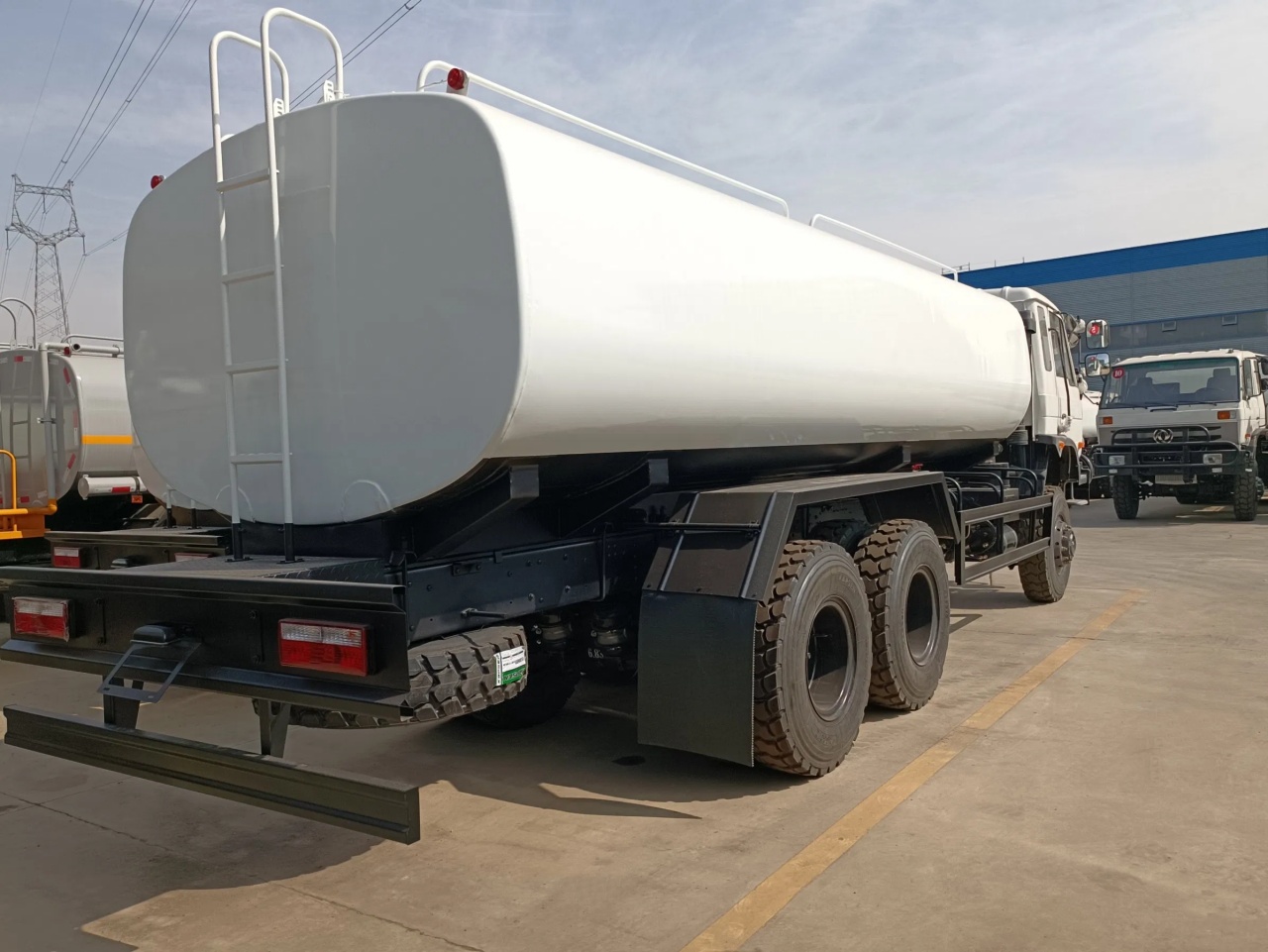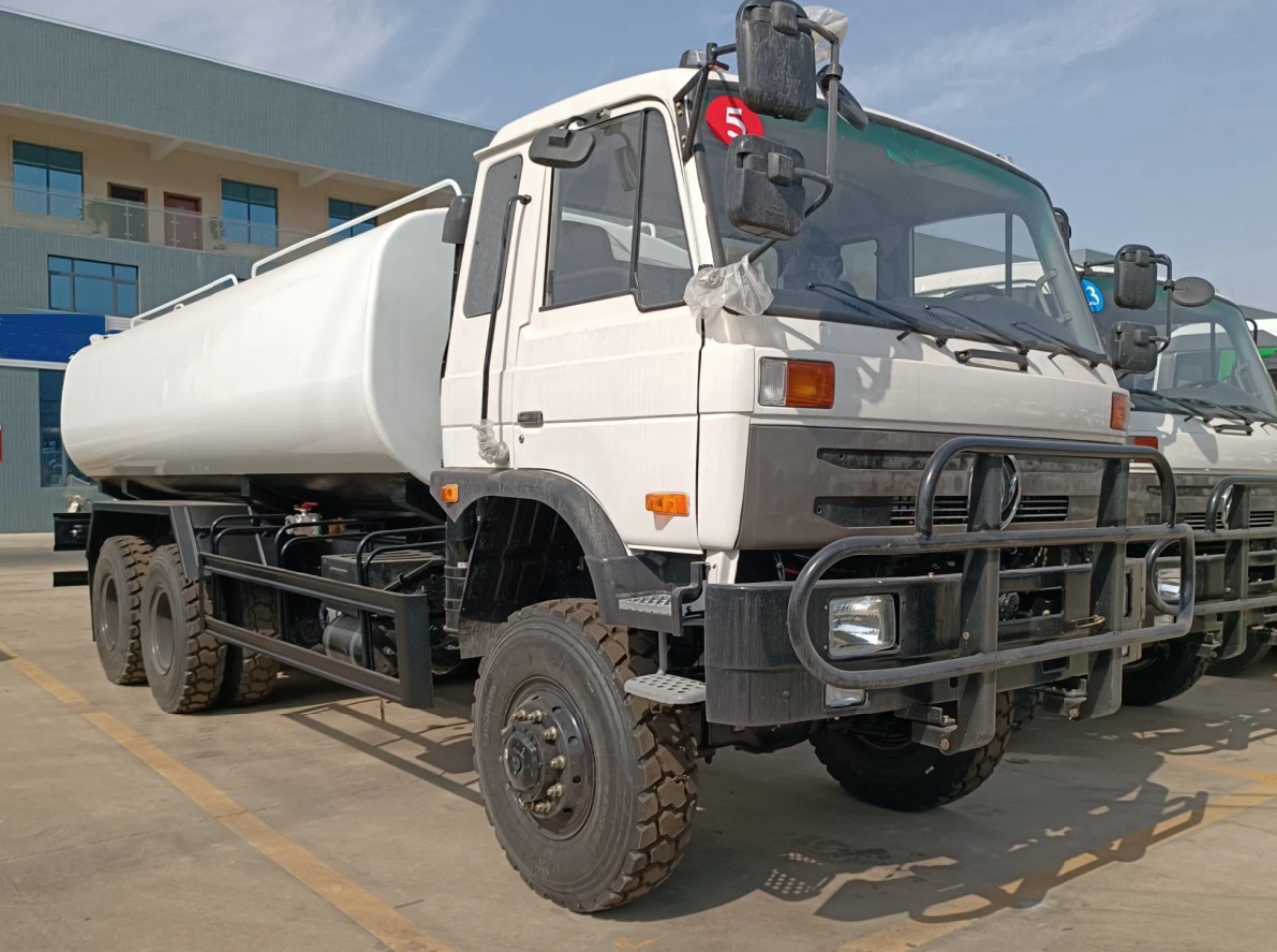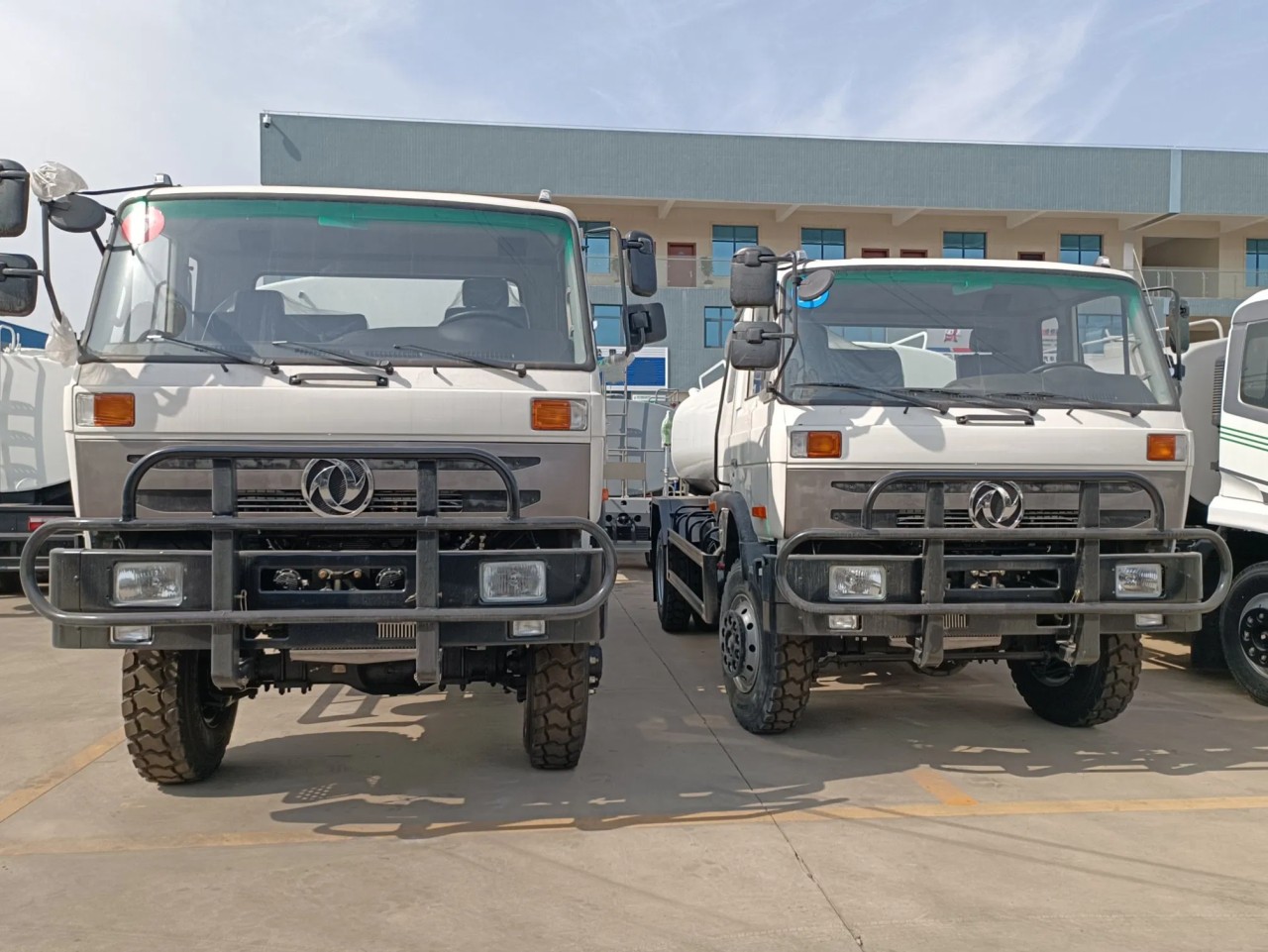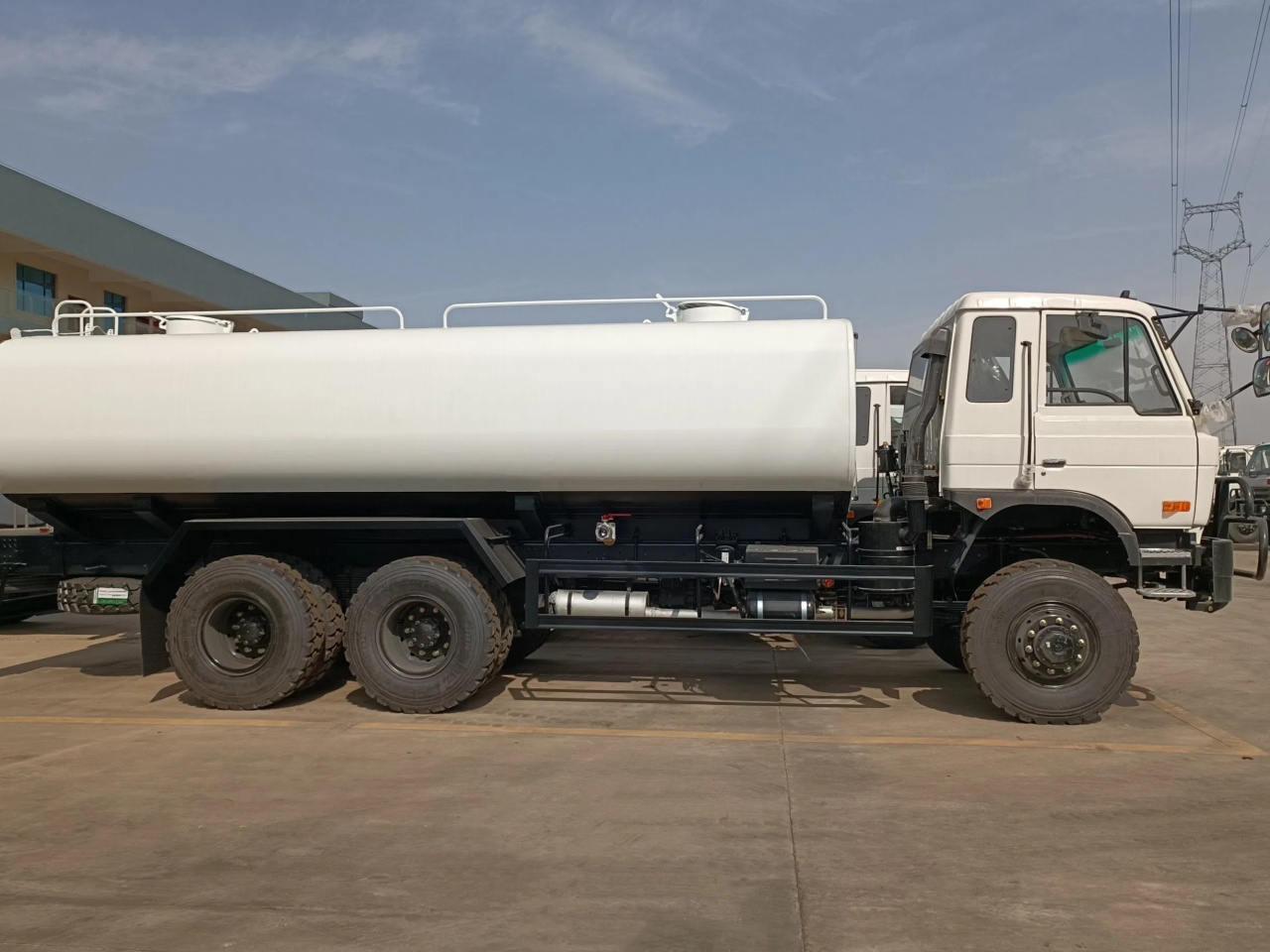Water tanker trucks are specialized vehicles designed to transport large volumes of water to areas where access to water is limited or unavailable. These trucks are used in a wide range of industries, including agriculture, construction, firefighting, mining, and municipal services. One of the most frequently asked questions about these vehicles is: What is the maximum capacity of a water tanker truck? The answer depends on several factors such as vehicle type, local regulations, road conditions, and intended use. In this article, we’ll explore the different types of water tanker trucks, the factors influencing their capacities, and real-world examples to give you a comprehensive understanding of their maximum capacity.
Types of Water Tanker Trucks
Before diving into specific capacities, it’s important to understand the different categories of water tanker trucks, as each is built for different applications and capacities.
1. Small Water Tanker Trucks
These are usually light-duty trucks mounted with water tanks ranging from 500 to 3,000 liters (132 to 792 gallons). They are used in narrow urban areas, small-scale gardening, and light-duty tasks such as street cleaning in tight neighborhoods.
2. Medium Water Tanker Trucks
These medium-duty trucks are equipped with tanks holding between 3,000 and 10,000 liters (792 to 2,642 gallons). They are popular for municipal use, including dust suppression, street washing, and limited construction work.
3. Large Water Tanker Trucks
These heavy-duty trucks can carry 10,000 to 30,000 liters (2,642 to 7,925 gallons). Used in large-scale construction sites, mining operations, and large farm irrigation, these trucks offer more versatility and reach.
4. Off-Road and Specialized Tankers
Some water tankers are specifically designed for off-road use, especially in mining and oilfield operations. These can hold up to 60,000 liters (15,850 gallons) or more, depending on the configuration and local laws.
Maximum Legal Road Capacity
The maximum capacity of a water tanker truck is heavily influenced by road regulations, which vary by country and region. For example:
- In the United States, the Federal Highway Administration limits gross vehicle weight to 80,000 pounds (36,287 kg) on interstate highways unless special permits are obtained.
- In Europe, maximum allowable weights vary between 40 to 44 tons (88,000 to 97,000 lbs) for articulated vehicles, depending on the number of axles and specific national regulations.
- In Australia, road trains used in remote areas can legally haul water tanks with combined capacities exceeding 100,000 liters (26,417 gallons).
Legal road limits not only depend on total vehicle weight but also axle configuration, braking systems, and bridge load ratings.
Construction and Design Limitations
The physical construction of the water tanker plays a big role in determining maximum capacity. Water is extremely heavy — approximately 1 kilogram per liter (8.34 pounds per gallon) — so tank size must be balanced against vehicle strength and stability.
Key design considerations include:
- Chassis Strength: The truck’s frame must be able to support the full tank weight during movement, braking, and cornering.
- Axle Load Ratings: Each axle must be rated to carry a proportion of the total load, which limits how much can be legally and safely transported.
- Tank Material: Water tanks are often made from carbon steel, stainless steel, aluminum, or food-grade plastic. Lightweight materials allow for larger volumes without exceeding weight limits.
- Baffle Systems: Tanks typically include internal baffles to prevent the surge effect (sloshing), which can destabilize the vehicle.
Real-World Examples
To better understand maximum capacities, let’s look at real-world examples of water tanker trucks:
1. HOWO 8×4 Water Tanker Truck
- Capacity: 25,000 – 30,000 liters (6,600 – 7,925 gallons)
- Usage: Road cleaning, dust control, construction site water delivery
- Engine: 371 HP diesel engine with 8×4 drive configuration
- Special Features: Rear and side spray nozzles, water cannon
2. Kenworth T880 Water Truck (U.S. Model)
- Capacity: Up to 20,000 liters (5,300 gallons)
- Usage: Construction and dust suppression
- Tank Material: Steel or aluminum
- Drive Type: 6×4 with automatic or manual transmission
3. Caterpillar Off-Highway Water Truck (e.g., CAT 777G Water Truck)
- Capacity: 76,000 liters (20,000 gallons) or more
- Usage: Mining and quarry operations
- Drive Type: Off-road, heavy-duty all-wheel-drive
- Features: High-capacity pumps, advanced spray controls, and operator safety systems
These examples highlight how truck size and usage influence capacity. Off-highway vehicles can carry significantly more than road-legal models because they aren’t restricted by public road laws.
Other Influencing Factors
1. Water Type
Different types of water — potable, graywater, or saltwater — may require specific tank linings or reinforcements. Potable water tanks are often slightly smaller due to the need for additional internal coatings or food-grade materials.
2. Pump and Spray Equipment
Tanker trucks often come with onboard pumps and spray bars. These can add weight and space considerations, reducing overall tank volume slightly.
3. Environmental Conditions
In mountainous or poorly paved areas, trucks may need to be smaller to handle terrain, thus reducing capacity. Conversely, flat open land with good infrastructure allows for larger tankers.
Summary: Maximum Capacity at a Glance
| Truck Type | Capacity Range | Typical Use Case |
|---|---|---|
| Light-duty (Urban) | 500 – 3,000 liters | Garden, street cleaning |
| Medium-duty (Municipal) | 3,000 – 10,000 liters | Construction, road wash, urban delivery |
| Heavy-duty (Construction) | 10,000 – 30,000 liters | Mining, construction, and agriculture |
| Off-road (Mining) | 30,000 – 76,000+ liters | Dust suppression, haul road maintenance |
| Road train (Australia) | 70,000 – 100,000+ liters | Remote area water transport |
Conclusion
The maximum capacity of a water tanker truck can vary widely, from a few hundred liters in small city-use trucks to over 100,000 liters in off-road or road-train configurations. Legal road limits, vehicle design, tank material, and intended application all affect how much water a tanker truck can carry. For most standard road operations, 20,000 to 30,000 liters represents the upper limit without requiring special permits. Understanding these factors is crucial when choosing the right water truck for specific tasks, whether it’s for urban sanitation, fire suppression, or heavy industrial use.





